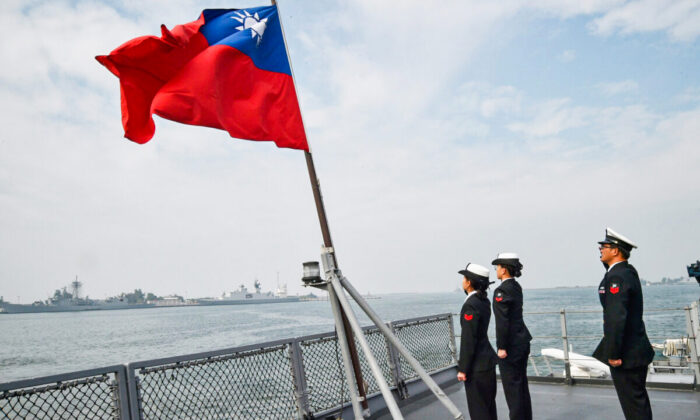TAIPEI, Taiwan—Taiwan’s military has dismissed Beijing’s allegations that Taipei was behind a hacking group carrying out cyberattacks against targets in China, according to a Sept. 23 statement.
Some Taiwanese lawmakers also denied Beijing’s allegations, emphasizing that it is communist China that has been waging cyber and psychological warfare against Taiwan.
China’s Ministry of State Security (MSS), the Chinese regime’s top intelligence agency, said an organization called “Anonymous 64” has been hacking websites, outdoor electronic screens, and network TV stations in China, Hong Kong, and Macau since the beginning of this year, according to a blog published on Chinese social media platform Weixin on Sept. 23.
The MSS said the organization has sought to upload and broadcast “content that denigrates the mainland’s political system and major policies” to its targets.
The blog accused the hackers of being connected to Taiwan’s Information, Communications, and Electronic Force Command (ICEFCOM), which is under the jurisdiction of Taiwan’s defense ministry.
The MSS also named three individuals—Lo Chun-ming, Hung Li-chi, and Liao Wei-lun—claiming that they are active ICEFCOM members who are under Chinese investigation.
ICEFCOM issued its statement on the same day, saying that Beijing’s accusations were false.
“The current enemy situation and cyber threats are severe,” the statement reads. “The Chinese communist military and forces that coordinate with it continue to use aircraft, ships, and cyberattacks to harass Taiwan and are the instigators of undermining regional peace.”
The command said it would continue to follow the defense ministry’s guidance to strengthen the island’s cybersecurity.
ICEFCOM was established in 2017 to integrate the information, communications, and electronic capabilities of Taiwan’s three military services: the army, navy, and air force.
The Chinese Communist Party (CCP), which claims Taiwan as a part of its territory, has been targeting the island with military provocations and gray-zone tactics such as cyberattacks.
Taiwan’s national security agency also responded to the allegations, saying that it was “obvious” that China was “deliberately manipulating” false information, according to Taiwan’s government-run Central News Agency.
The security agency said that China likely used the incident to deflect the international community’s warnings about the regime’s malicious cyber activities.
Canadian Prime Minister Justin Trudeau and dozens of Canadian members of parliament were targeted by a China-linked Spamouflage campaign last year. The Canadian government said one objective of the campaign was to get MPs to distance themselves from critics of the CCP.
In July, federal intelligence agencies from the Five Eyes alliance issued an advisory warning that a Chinese spy group known as APT40 had been hacking public and private networks. The Five Eyes countries are the United States, the UK, Australia, Canada, and New Zealand.
“The authoring agencies assess that this group conduct[s] malicious cyber operations for [China’s] Ministry of State Security,” the July 8 advisory stated.
FBI Director Christopher Wray warned in April that China’s malign cyber actors outnumber the FBI’s cyber experts 50 to one.
Wang Ting-yu, a senior legislator for Taiwan’s ruling Democratic Progressive Party who sits on the parliament’s foreign affairs and national defense committee, said Beijing’s accusations are baseless, according to his YouTube video.
Wang said that Taiwan has long been one of the hardest-hit areas in terms of cyberattacks, with the majority of those attacks coming from China.
Lin Yi-chun, a legislator from the Taiwan People’s Party, urged people not to easily believe what China has said, adding that the latest incident could be part of the CCP’s psychological warfare against the island, according to local broadcaster Radio Taiwan International.
Reuters contributed to this report.

